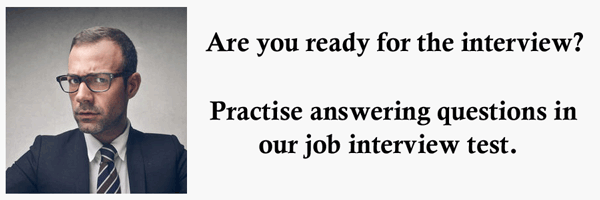One of the questions you may be asked in a job interview is why you left a previous job. There are 3 main reasons why this could have happened: you resigned, you were made redundant or you were fired.
Of the three, being fired is the most difficult to answer well. Being fired/sacked from a previous job will make you seem as a risk (a potential bad employee) to any employer because it suggests you did something bad.
You can of course lie in the interview and tell them you resigned/were made redundant from the job instead. But if you do, you run the risk of getting found out if they check with your previous employer. It's best to be honest in my opinion, but you need to give them a reason why it happened which the interviewers can appreciate and which doesn't put you in a bad light.
On the face of it, resigning (to take another job or to go travelling) or being made redundant are easier to explain. And they are. But you need to be careful in the reasons you give for why these happened. For resigning, your answer should not create doubts about your commitment to staying in a company. For being made redundant, you need to make it clear that it happened due to no fault of your own.
Whatever you do when answering this question for any of these three situations, never sound bitter and criticise the company for what happened. It doesn't sound professional and will damage your chances of getting the job.
In this online exercise on 'job interview questions', we will look at three good example answers for explaining why you left (or were forced to leave) a previous job. I will explain why the people are giving these answers and provide you with professional English vocabulary you can use in your own answers.
When you use any of these in a job interview, you should adapt them to your own situation.
Click here to see more of our free online exercises on vocabulary to use in CVs/resumes and job interviews.
Exercise:
Read the following 3 answers given by three different candidates in job interviews when answering the question 'why did you leave this job?'. In the first answer, the candidate explains why they were fired from a previous job. In the second, a candidate explains why they resigned. And in the third, the candidate explains why they were made redundant.
From the context, try to guess what the meaning of the words/phrases in bold are and why they are being used. Then do the quiz at the end to check if you are right.
Answer one
To be honest, I was let go from that company. The role of the position I had, changed from being a data analyst to being effectively a sales person. At that time, I didn't have the necessary skills to perform the new tasks I had to do as efficiently and quickly as was required to do the job well. As a consequence, after a month or so they decided to let me go. I think it was the right decision on their part to take.
In hindsight, I should have made them aware of the difficulties I was facing with adapting to the new role. But I didn't. The situation taught me a very important lesson, asking for help is not a sign of weakness, but a way to learn and improve what you do.
This is something which has greatly helped me in both of the jobs I have had since.
Answer two
I left the company to take up a position in another company. It wasn't an easy thing to do. The company I left was excellent to work for, I got on extremely well with everybody I worked with and really liked the role I was doing. But one of my ex-work colleagues made me aware of a vacancy at the company she was working at. It was a more senior role with more potential for self development.
Making the decision was difficult, but at that time in my career it was too good an opportunity to turn down. So, I left the company to take up the position that I was offered.
Answer three
I was made redundant. Due to the financial crisis, the company I worked for at that time had to reduce its overall costs. The department I was in, was one of those which was affected by the cutbacks. Unfortunately, I was one of 30 staff who were made redundant. It was a shock at the time, but I can appreciate why they had to do it.

Practice
Now that you understand the vocabulary, practise it. Click on the  icon and listen to the words/phrases and then test your own pronunciation in the 'prounciation speaking test'. Then create your own sentences with the new words/phrases.
icon and listen to the words/phrases and then test your own pronunciation in the 'prounciation speaking test'. Then create your own sentences with the new words/phrases.
Follow us on  or on Twitter
or on Twitter 





 , you can find extra information about the word/phrase (e.g. when, where and how to use etc...). In the second,
, you can find extra information about the word/phrase (e.g. when, where and how to use etc...). In the second,  , is where you can listen to the word/phrase.
, is where you can listen to the word/phrase.
